Ocular Pathology: Cornea and Glaucoma 1
1/17
There's no tags or description
Looks like no tags are added yet.
Name | Mastery | Learn | Test | Matching | Spaced |
|---|
No study sessions yet.
18 Terms
What is the difference between a Hordeolum and Chalazion?
Hordeolum (Stye)
→ an infection of the eyelash follicle or the associated glands of Zeiss or Moll
→ typically caused by staph species and is treated with warm compresses and baby-shampoo
Chalazion
→ granulomatous inflammation caused by a clogged Meibomian gland
If either returns in the exact same spot you need to rule out sebaceous carcinoma
What is a subconjunctival hemorrhage?
Hemorrhage caught in the potential space between the conjunctiva and sclera
→ most often idiopathic caused by eye rubbing or sneezing/coughing really hard
While it is typically benign, if there is 360 degree subconjunctival hemorrhage you need to operate on them to rule out an open globe or a rupture of the sclera
What is Pink Eye?
Viral Conjunctivitis or Pink Eye - commonly caused by adenovirus
1) patients will have watery discharge from the eye and will have their eyes matted shut
→ patients will have often been sick or recent sick contacts and is high contagious
2) Patients need artificial tears
What is Bacterial Conjunctivitis?
Patients will have purulent discharge and matting of their eye due to bacterial infection of their eye
→ usually contagious and should be treated with antibiotics based on the pathogen result
What are Pingueculae?
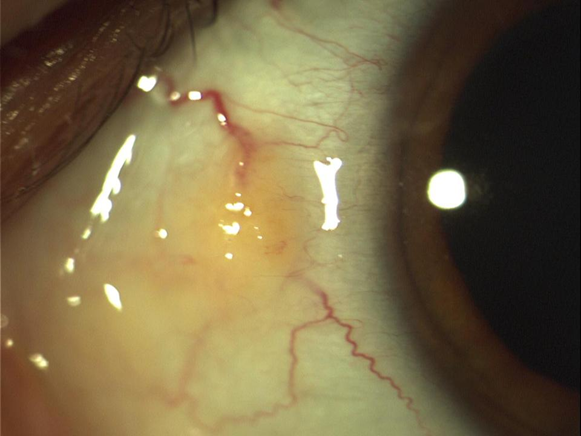
Pingueculae are common, benign, asymptomatic yellow or white deposits on the conjunctiva
→ typically protein, fat or calcium
→ may become inflamed
What is Pterygium?

Pterygium is a benign fibrous wedge shaped overgrowth of the conjunctiva onto the cornea
→ common in people from hot, dry, windy climates
→ while it is just cosmetic, some people may require surgery if it invades the visual axis or causes an astigmatism
What is Conj Edema?
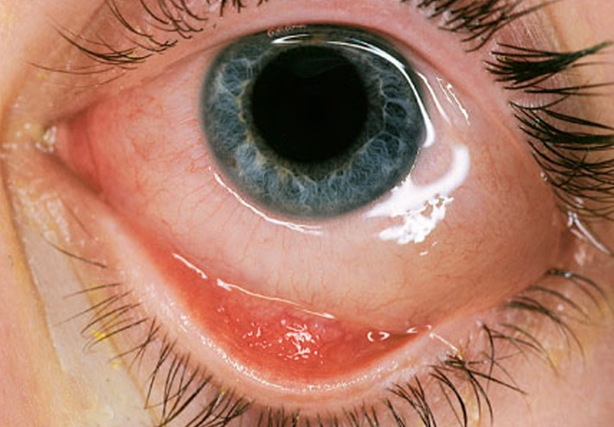
Chemosis or Conj Edema is a benign sign of ocular inflammation
→ will cause the eye to raise the eyelid off the cornea which may expose the cornea to an ulcer or perforation
What is Arcus Senilis?
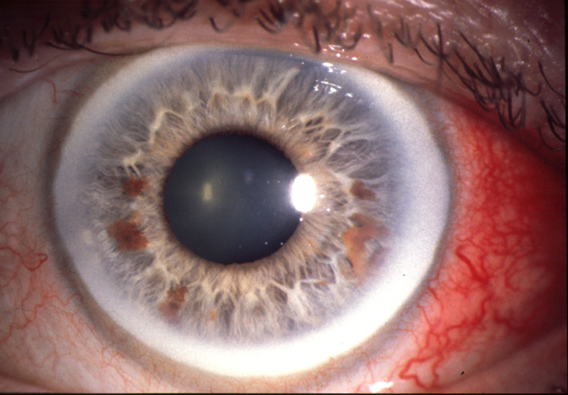
Arcus Senilis is a bilateral circumferential band of deposits of lipids near Descemet’s membrane of the cornea
→ looks like a white deposition around the cornea
→ usually benign, but should be checked for lipid abnormalities in patients under forty
What is Band Keratopathy?
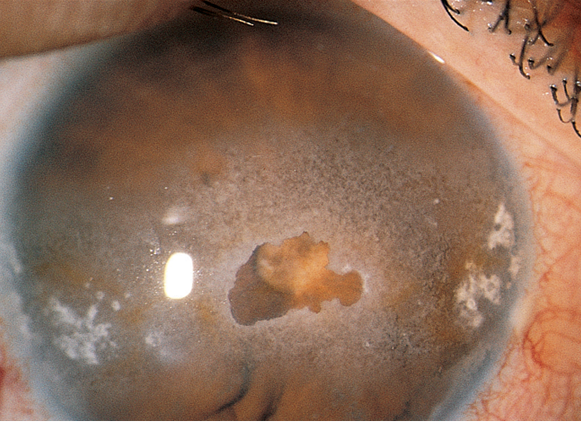
Band Keratopathy is subepithelial calcium deposits often caused by chronic ocular inflammation, renal failure or hyperphosphatemia
→ starts at the limbus and slowly moves towards the center
What are Kayser-Fleischer Rings?
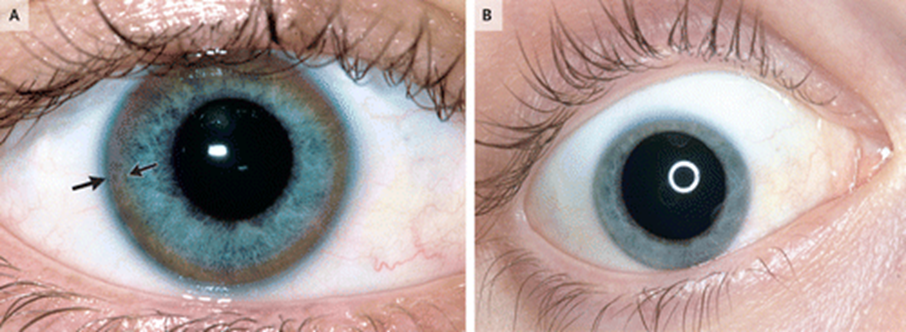
Kayser-Fleischer Rings are rings of yellow brown copper deposits in Descemet’s membrane
→ associated with Wilson’s Disease and is treated with Penicillamine
What are the two kinds of Iron Lines?
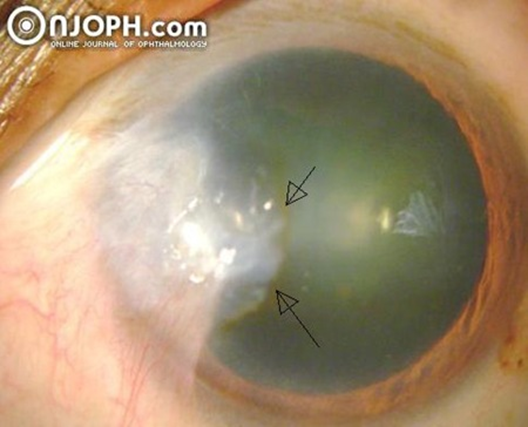
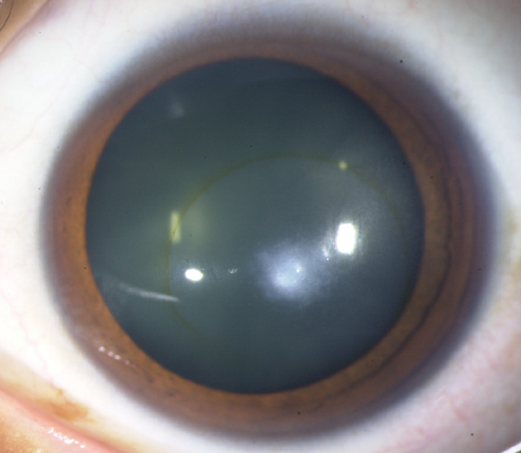
Stocker’s Line (first image)
→ iron deposit at the head of the pterygium
Fleischer’s Ring
→ iron deposit in the corneal epithelium
What is a Keratoconus?


Keratoconus is a thinning and conical deformation of the central cornea
→ causes the cornea to thin and protrude outward making a cone shape
→ causes Munson’s sign where the eyelid will protrude into a point
stretching can eventually cause desemet’s membrane to break leading to corneal hydrops where aqueous fluid fills the cornea
→ extremely painful
What is a Corneal Abrasion?
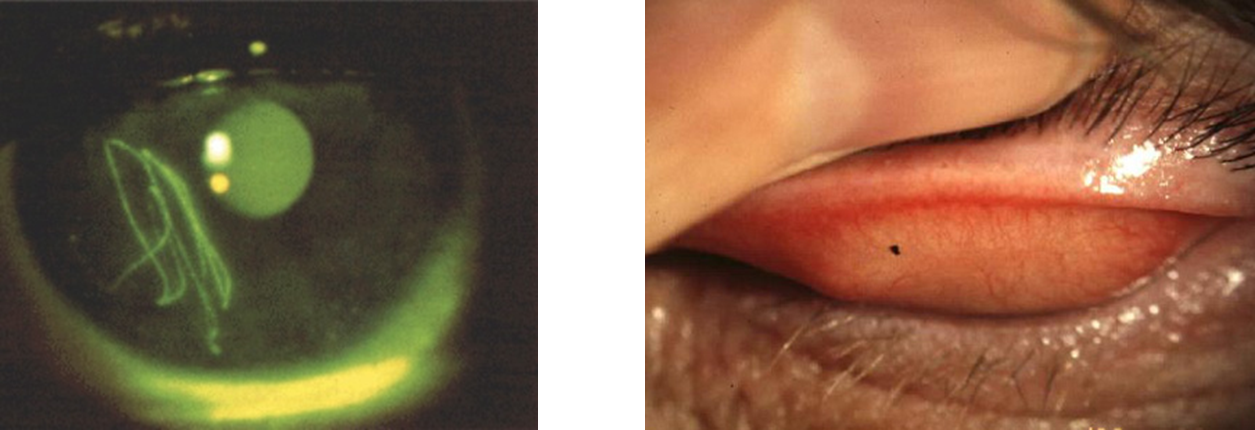
Corneal abrasions are scratches on the cornea often caused by foreign material and are identifiable by fluorescin dye
1) Patients with corneal abrasions often have foreign bodies inside their eyelid causing the abrasion
→ we should always invert the eyelid in these patients in order to remove the foreign body
2) Do not give these patients steroids/numbing drops because their epithelium is broken
→ may cause a serious infection while the numbing drops are toxic to the epithelium
What is a Corneal Foreign Body?
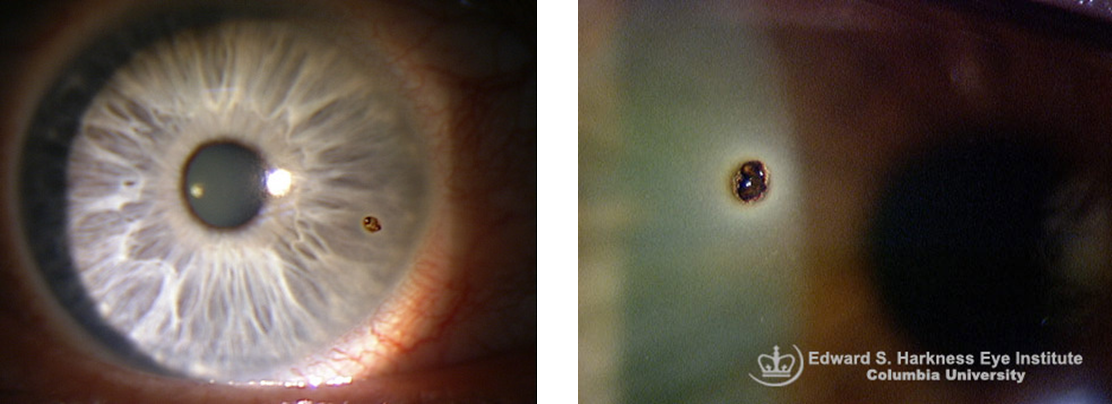
Corneal foreign bodies are small flecks of metal or other material in the cornea
→ patients have metal removed from their eye using a dremel burr or needle
→ must treat the epithelium and stromal defect as a corneal abrasion
What is a Corneal Ulcer?

Corneal Ulcers are infectious ulcers of the cornea which often present with severe conjunctivitis and white opacity on the cornea
→ Often caused by sleeping in contacts leading to a pseudomonas infections of the eye
What is Herpetic Viral Keratitis?
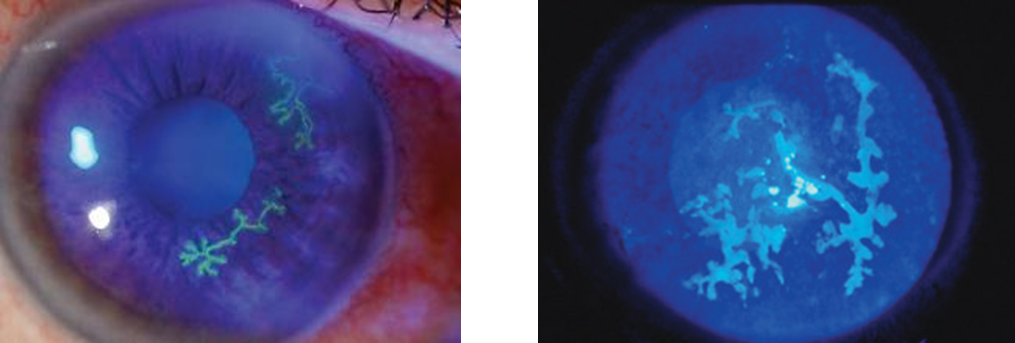
Herpes can cause dendritic staining patterns of the eye causing pain and redness of the eye
→ Type I Herpes is the most common
→ patients are treated with a antiviral, but do not treat them with steroids
What is Zoster Opthamicus?
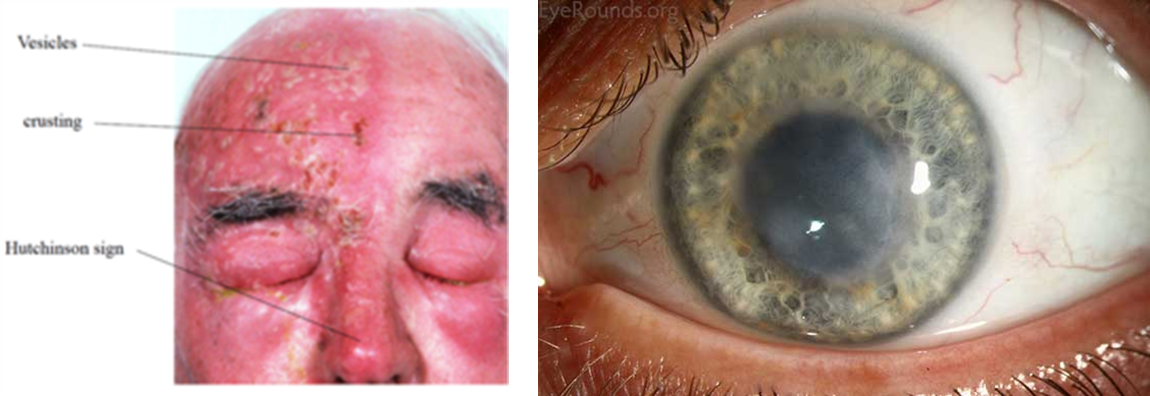
Varicella Zoster can cause Zoster Ophthamicus during a reactivation
→ when the ophthalmic division of the trigeminal nerve is affected, patients can have reactivation in the eye
→ patients will often have Hutchinson’s sign or involvement of Shingles in the nose
What is Chemical Burn of the Eye?
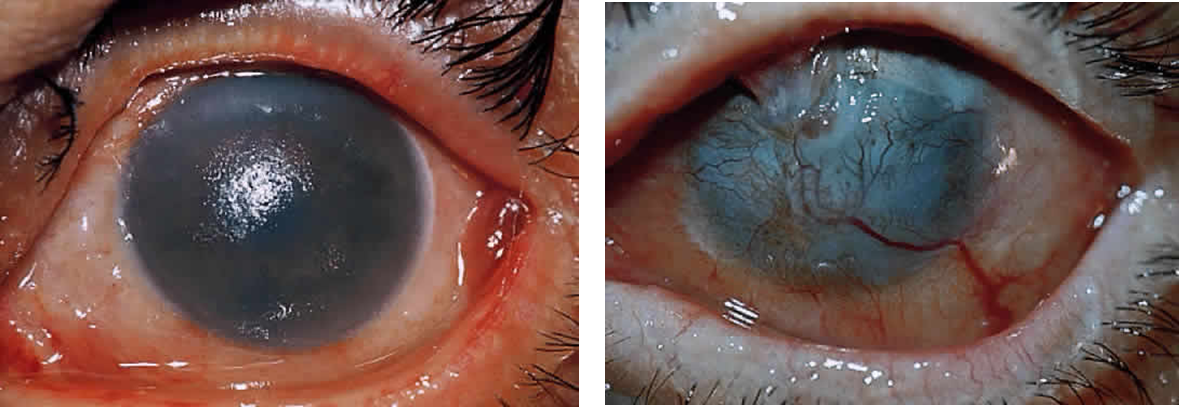
1) Akali burns are more severe than acidic burns
→ patients should always irrigate or wash their eye immediately after getting chemicals into the eye
→ the pH needs to normalize before being treated